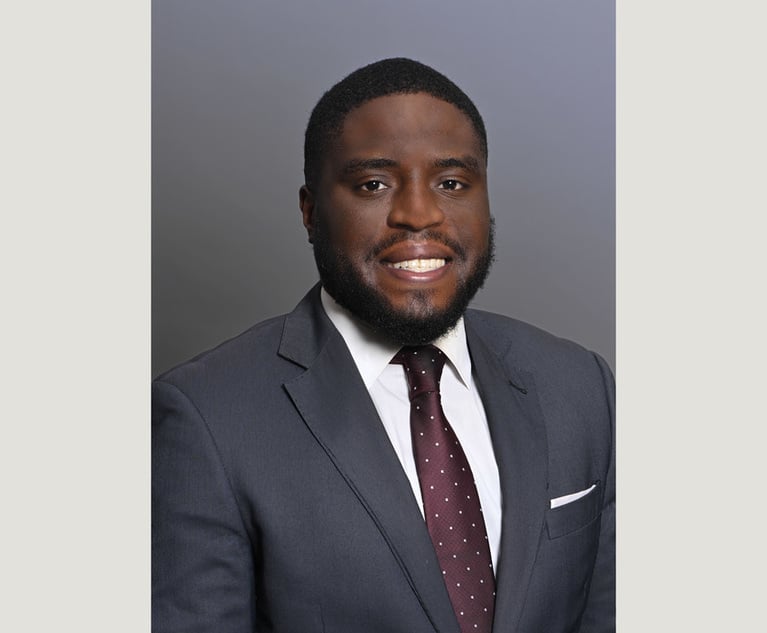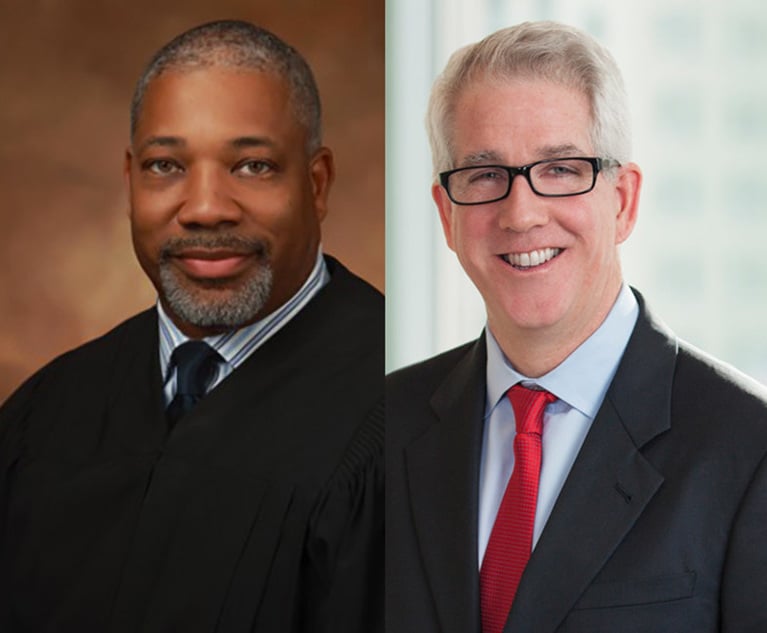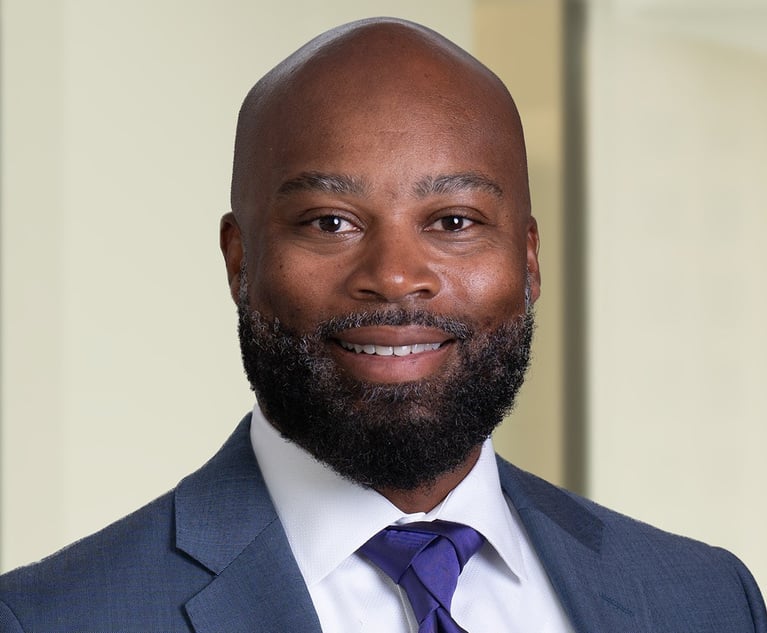 University of Pittsburgh Medical Center. Photo: Erika J Mitchell/Shutterstock.com
University of Pittsburgh Medical Center. Photo: Erika J Mitchell/Shutterstock.com With Clock Still Ticking, Justices Remand UPMC-Highmark Dispute for More Info
Just over a month out from the scheduled expiration date of a consent decree between feuding health care giants Highmark and the University of Pittsburgh Medical Center, the Pennsylvania Supreme Court said it needs more information before it can decide whether the deadline should be extended indefinitely.
May 29, 2019 at 02:48 PM
6 minute read
Just over a month out from the scheduled expiration date of a consent decree between feuding health care giants Highmark and the University of Pittsburgh Medical Center, the Pennsylvania Supreme Court said it needs more information before it can decide whether the deadline should be extended.
The Pennsylvania Office of Attorney General, backed by Highmark, is seeking the extension, arguing that a broad modification provision in the consent decree allows for the termination date to be changed and that allowing the consent decree to expire while the two companies remain engaged in litigation would substantially harm hundreds of thousands of western Pennsylvania residents. UPMC has disputed that any harm would occur and argues that the deadline cannot be changed.
This past April, Commonwealth Court Judge Robert Simpson ruled that, despite the modification provision, the end date was one aspect of the agreement that could not be altered. Simpson pointed to a ruling from last year by the state Supreme Court, which held that the June 30 termination date “was an unambiguous and material term of the consent decree.”
On May 28, the justices ruled 4-3 to remand the case back to the Commonwealth Court for an expedited hearing on whether the parties intended, when they drafted the consent decree, for the deadline to be modifiable.
“Although UPMC successfully establishes that OAG's interpretation is not conclusive with regard to the relief that OAG requested, it does not persuade us that the modification provision is susceptible only to UPMC's interpretation, as would be necessary for us to determine that 'the law says with certainty that no recovery is possible,'” Judge David Wecht wrote for the majority. “Accordingly, and because we must resolve all doubt in favor of overruling UPMC's demurrer, we cannot conclude that OAG's requested relief is unavailable as a matter of law. Rather, the matter requires evidentiary development beyond the pleading stage in order to glean what the text fails to reveal: the parties' intent with regard to the scope of the modification provision.”
Wecht was joined by Justices Debra Todd, Kevin Dougherty and Sallie Updyke Mundy.
Justice Max Baer penned a concurring and dissenting opinion, joined by Chief Justice Thomas Saylor and Justice Christine Donohue, arguing that the Attorney General's Office is not attempting to modify the termination provision but rather is seeking to “eliminate the termination provision and substitute language to allow the consent decree to continue into perpetuity, contrary to the clear intent of the parties.”
“From my point of view, an indefinite extension of a consent decree, particularly a long-term one such as the one at issue here, crosses the line from modification to innovation of new measures in the form of a mandatory injunction,” Baer said. “Moreover, if injunctive relief were to be granted, this court should be concerned, premised upon the parties' past behavior, that the courts of this commonwealth will be called upon to superintend aspects of the parties' separation indefinitely. There is no need for an evidentiary hearing to opine with certainty that the parties did not intend for the modification provision to allow the court to extinguish the termination date permanently.”
The bitter fight between Highmark and UPMC centers on their inability to reach an agreement regarding UPMC's continued treatment of Highmark insureds. From 2002 until 2012, the companies operated in accordance with a 10-year provider agreement under which UPMC agreed to treat and bill patients with Highmark insurance according to negotiated rates, court documents said. But in 2011, ahead of the termination date of that agreement, UPMC announced it would not renew or renegotiate the pact, citing Highmark's planned affiliation with West Penn Allegheny Health System, which ultimately was approved, creating an entity in direct competition with UPMC.
Following the intervention of the Attorney General's Office, the state insurance commissioner and the secretary of health, UPMC and Highmark entered into separate but essentially identical consent decrees that allowed for Highmark subscribers to continue receiving in-network treatment from UPMC until June 30, court documents said. (Due to the acrimony between them, Highmark and UPMC both refused to sign a single document, so there are two separate consent decrees that differ only in that UPMC's version requires UPMC to comply with its requirements and Highmark's version requires Highmark to comply with its requirements, according to court records.)
In the Supreme Court's May 28 ruling, Wecht said that although the June 30 termination date is fast-approaching, “We are confident that the skilled advocates before us will be able to marshal adequate extrinsic evidence of the parties' intent expeditiously, and to promptly build a narrowly focused record sufficient for the fact-finder to interpret the contested provision based upon that evidence in the first instance.”
Baer, however, said in a footnote that he is “less confident than the majority that the discovery, hearings, and fact-finding necessary to effectuate its ruling can be accomplished prior to the June 30 termination date.”
“Although the majority asserts that the issue before the Commonwealth Court is a narrow one requiring only a limited evidentiary record, this will be true only if UPMC prevails on the question of the parties' intent relative to modification,” he said.
In a press release following the Supreme Court's ruling, Pennsylvania Attorney General Josh Shapiro said the justices “took a crucial step towards delivering justice for the people of Western Pennsylvania by agreeing with my office's argument and reversing Commonwealth Court's decision that the end date of UPMC/Highmark's consent decrees could not be modified as a matter of law.”
“As directed by the Supreme Court, my office will now make our case in Commonwealth Court on an expedited basis that modification of the end date is not just permitted—but necessary to ensure UPMC fulfills its role as a public charity and isn't able to shun the very taxpayers whose tax dollars built their business,” Shapiro said.
A spokesman for UPMC, meanwhile, said in a statement, “None of the justices, notably, accepted the OAG's position that the modification clause was unlimited, deciding this issue was a matter for Commonwealth Court to resolve after receiving additional evidence. Importantly, all the justices agreed that it was not necessary for them to extend the termination date of the Consent Decrees through their extraordinary powers.”
Counsel for Highmark, Kim Watterson of Reed Smith in Pittsburgh, did not respond to a request for comment on the Supreme Court's ruling.
(Copies of the 29-page opinion in Commonwealth v. UPMC, PICS No. 19-0662, are available at http://at.law.com/PICS.)
This content has been archived. It is available through our partners, LexisNexis® and Bloomberg Law.
To view this content, please continue to their sites.
Not a Lexis Subscriber?
Subscribe Now
Not a Bloomberg Law Subscriber?
Subscribe Now
NOT FOR REPRINT
© 2024 ALM Global, LLC, All Rights Reserved. Request academic re-use from www.copyright.com. All other uses, submit a request to [email protected]. For more information visit Asset & Logo Licensing.
You Might Like
View All


'Grave Matter of Serious Consequences': Why a Missouri Judge Sanctioned a Top Kirkland & Ellis Attorney
10 minute read
Morgan Lewis Snatches Up Former Orrick Partner in Boston
Trending Stories
- 1Haynes Boone, Hicks Thomas Get Dismissal of $1.3B Claims in 2022 Freeport LNG Terminal Explosion
- 2Immigration Under the Trump Administration: Five Things to Expect in the First 90 Days
- 3'Radical Left Judges'?: Trump Demands GOP Unity Against Biden's Judicial Picks
- 4NY District Attorneys Are Still No Fans of Revamped Misconduct Watchdog
- 5ICC Issues Arrest Warrants for Israel's Prime Minister Over Alleged War Crimes in Gaza
Who Got The Work
Michael G. Bongiorno, Andrew Scott Dulberg and Elizabeth E. Driscoll from Wilmer Cutler Pickering Hale and Dorr have stepped in to represent Symbotic Inc., an A.I.-enabled technology platform that focuses on increasing supply chain efficiency, and other defendants in a pending shareholder derivative lawsuit. The case, filed Oct. 2 in Massachusetts District Court by the Brown Law Firm on behalf of Stephen Austen, accuses certain officers and directors of misleading investors in regard to Symbotic's potential for margin growth by failing to disclose that the company was not equipped to timely deploy its systems or manage expenses through project delays. The case, assigned to U.S. District Judge Nathaniel M. Gorton, is 1:24-cv-12522, Austen v. Cohen et al.
Who Got The Work
Edmund Polubinski and Marie Killmond of Davis Polk & Wardwell have entered appearances for data platform software development company MongoDB and other defendants in a pending shareholder derivative lawsuit. The action, filed Oct. 7 in New York Southern District Court by the Brown Law Firm, accuses the company's directors and/or officers of falsely expressing confidence in the company’s restructuring of its sales incentive plan and downplaying the severity of decreases in its upfront commitments. The case is 1:24-cv-07594, Roy v. Ittycheria et al.
Who Got The Work
Amy O. Bruchs and Kurt F. Ellison of Michael Best & Friedrich have entered appearances for Epic Systems Corp. in a pending employment discrimination lawsuit. The suit was filed Sept. 7 in Wisconsin Western District Court by Levine Eisberner LLC and Siri & Glimstad on behalf of a project manager who claims that he was wrongfully terminated after applying for a religious exemption to the defendant's COVID-19 vaccine mandate. The case, assigned to U.S. Magistrate Judge Anita Marie Boor, is 3:24-cv-00630, Secker, Nathan v. Epic Systems Corporation.
Who Got The Work
David X. Sullivan, Thomas J. Finn and Gregory A. Hall from McCarter & English have entered appearances for Sunrun Installation Services in a pending civil rights lawsuit. The complaint was filed Sept. 4 in Connecticut District Court by attorney Robert M. Berke on behalf of former employee George Edward Steins, who was arrested and charged with employing an unregistered home improvement salesperson. The complaint alleges that had Sunrun informed the Connecticut Department of Consumer Protection that the plaintiff's employment had ended in 2017 and that he no longer held Sunrun's home improvement contractor license, he would not have been hit with charges, which were dismissed in May 2024. The case, assigned to U.S. District Judge Jeffrey A. Meyer, is 3:24-cv-01423, Steins v. Sunrun, Inc. et al.
Who Got The Work
Greenberg Traurig shareholder Joshua L. Raskin has entered an appearance for boohoo.com UK Ltd. in a pending patent infringement lawsuit. The suit, filed Sept. 3 in Texas Eastern District Court by Rozier Hardt McDonough on behalf of Alto Dynamics, asserts five patents related to an online shopping platform. The case, assigned to U.S. District Judge Rodney Gilstrap, is 2:24-cv-00719, Alto Dynamics, LLC v. boohoo.com UK Limited.
Featured Firms
Law Offices of Gary Martin Hays & Associates, P.C.
(470) 294-1674
Law Offices of Mark E. Salomone
(857) 444-6468
Smith & Hassler
(713) 739-1250





